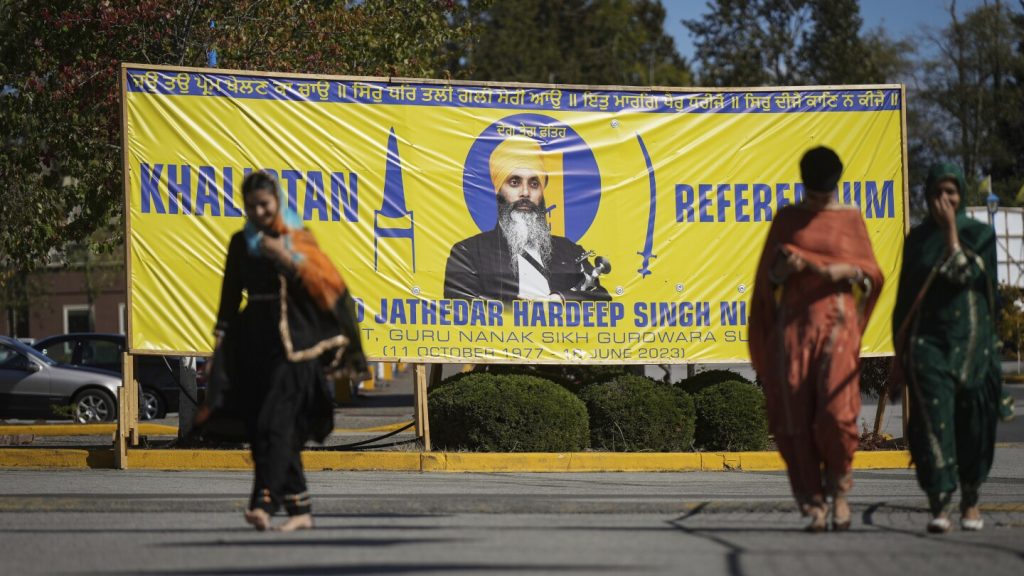Canadian police have arrested three suspects in connection with the slaying of a Sikh separatist leader in British Columbia. The suspects, identified as Kamalpreet Singh, Karan Brar, and Karampreet Singh, were Indian nationals living in Edmonton, Alberta. The victim, 45-year-old Hardeep Singh Nijjar, was shot by masked gunmen outside Vancouver. Canadian Prime Minister Justin Trudeau previously mentioned “credible allegations” of Indian involvement in the slaying, leading to tensions between the two countries. India denied any involvement but asked Canada to remove diplomats in response. The suspects are facing charges of first-degree murder and conspiracy to commit murder.
The Royal Canadian Mounted Police are investigating possible ties between the detainees and the Indian government. The three men were non-permanent residents in Canada, and authorities are collaborating with counterparts in India, which has proven challenging. Nijjar, a plumber and a leader in the Khalistan movement, denied allegations of ties to terrorism. The movement aims to create an independent Sikh homeland, Khalistan, although it has lost much of its political power. The movement still has supporters in Punjab and the overseas Sikh diaspora. The Indian government has warned about Sikh separatists attempting a resurgence.
The Khalistan movement traces back to a bloody decadelong Sikh insurgency in the 1970s and 1980s, which was violently suppressed by the Indian government. Thousands of people, including prominent Sikh leaders, were killed in the crackdown. Despite the end of the active insurgency, the Indian government continues to monitor Sikh separatist activities, fearing a revival. The suspects, originally from India, now face charges in British Columbia related to the murder of Nijjar, who was an Indian-born citizen of Canada. Tensions between Canada and India have somewhat eased since the initial allegations of Indian involvement in the slaying.
Canadian authorities have confirmed that the suspects will be transported to British Columbia by Monday to face the charges against them. The investigation into the slaying of Nijjar is ongoing, with a focus on potential connections to the Indian government. The arrests of the three Indian nationals in connection with the killing have brought attention to the complex history of the Sikh separatist movement and its ongoing impact on relations between Canada and India. Despite the challenges in collaborating with Indian authorities, Canadian law enforcement is determined to pursue justice in this case. The Khalistan movement’s legacy of violence and political unrest continues to resonate in both India and the Sikh diaspora worldwide.
The arrest of the three suspects in the slaying of Hardeep Singh Nijjar underscores the interconnected nature of global politics and regional conflicts. The allegations of Indian involvement in the killing have strained relations between India and Canada, leading to diplomatic tensions. As the investigation progresses, Canadian authorities are working to uncover the truth behind Nijjar’s death and determine any potential ties to the Indian government. The arrests have reignited discussions about the Khalistan movement and the ongoing struggle for Sikh autonomy, highlighting the complexities of ethnic and political identities in a globalized world. Whether the suspects will be extradited to India or face trial in Canada remains to be seen, but the case has already left a lasting impact on the diplomatic relations between the two countries.


